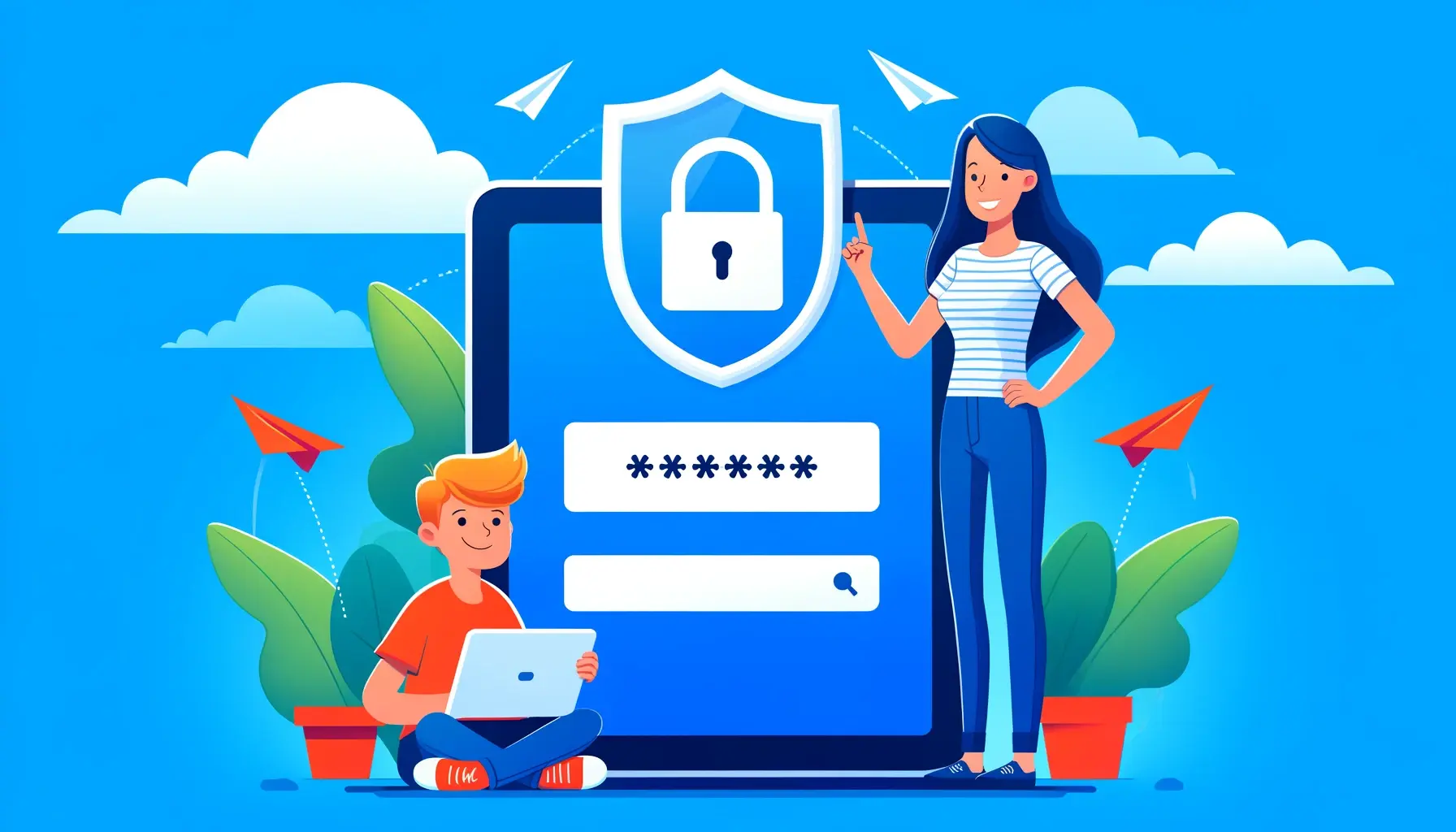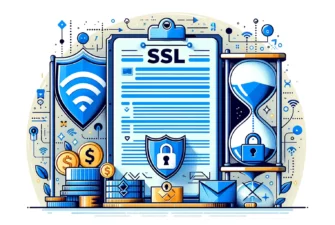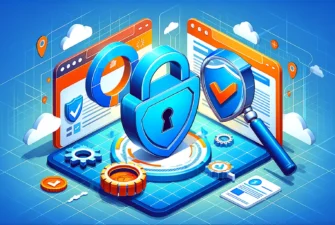
You’ve likely seen the padlock symbol or the HTTPS acronym next to a website’s URL while browsing. These symbols indicate that the connection between the browser and the website server is secure.
The underlying technology behind this is the SSL/TLS cryptographic protocol. Today, all websites must use it to comply with the security and SEO guidelines.
But why is SSL important? What benefits does it bring that browsers and search engines deem it a critical element of digital interactions? This article discusses the importance of an SSL certificate for a website.
9 Reasons Why SSL Is Important
Consider SSL as your first line of defense against data theft. Among its many uses, it enhances your website’s security, protects sensitive information, builds trust online, prevents phishing attacks, and secures online transactions. Let’s explore these points in greater detail.
1. Enhances Web Security
Since their emergence, SSL (Secure Sockets Layer) and its predecessor TLS (Transport Layer Security) protocols have revolutionized web security.
SSL encrypts the connection between users’ browsers and your site, ensuring that any data exchanged remains confidential and untouched. It’s like having a digital bodyguard, shielding sensitive information from cyber threats like hackers and malware.
With SSL, your website establishes a secure channel for data transmission, making it nearly impossible for unauthorized parties to intercept or tamper with the information in transit. As a result, personal details, login credentials, and payment information are all safe from hackers.
SSL strengthens security and builds trust. When visitors connect to a secure website, they can browse, shop, and interact confidently.
2. Protects Sensitive Data
Without SSL, data travels in plain text when you fill in an online form or sign in on any website, meaning it’s easily readable to anyone who intercepts it. This vulnerability exposes sensitive information like passwords or credit card details to potential theft or misuse.
However, SSL encryption scrambles this data into an unintelligible format during transmission, making it virtually impossible for unauthorized parties to decipher. Consequently, SSL ensures that sensitive data remains confidential and secure during online transactions or communication, safeguarding user privacy and preventing cyber attacks.
SSL encrypts data through a process called symmetric encryption. When a user’s browser initiates a connection with a secure website, the server sends its public key to the browser. The browser then generates a random session key, encrypts it using the public key, and sends it back to the server.
Only the server, possessing the corresponding private key, can decrypt this session key.
Want to know more about what happens in the background while you connect to a secure website? Check our guides on TLS handshake and Public Key Cryptography.
3. Builds Trust Online
Beyond its technical function, SSL serves as a visible indicator of a website’s commitment to security and user privacy. When visitors encounter the padlock icon or “https://” in the browser’s address bar, they perceive the website as trustworthy and reliable, reinforcing their confidence in conducting transactions or sharing personal information. This transparency in security measures strengthens the credibility of websites and fosters positive user experiences.
Additionally, SSL demonstrates a website’s commitment to maintaining a secure online environment. By investing in an SSL certificate and implementing encryption protocols, website owners signal their dedication to protecting user data and reducing cyber threats.
This proactive approach to security builds trust by demonstrating accountability and reliability, ultimately cultivating long-term relationships with users based on mutual trust and confidence.
4. Secures Online Transactions
Using unsecured connections for online transactions is like leaving your wallet on a crowded bus; it’s easy for someone to snatch your details. By encrypting data exchanged during online transactions, SSL ensures that financial data remains confidential and inaccessible to unauthorized parties.
SSL protects information like credit card numbers, expiration dates, and CVV codes from being intercepted or manipulated by cybercriminals. Beyond just encrypting data, SSL provides a sense of assurance to both merchants and customers. For merchants, SSL certification indicates their commitment to protecting customers’ financial information.
With SSL in place, the likelihood of fraudulent activities such as unauthorized transactions or data breaches is almost nonexistent, providing a secure environment for conducting online transactions.
5. Proves Business Legitimacy
The SSL importance goes beyond data encryption into the realm of identity authentication. An SSL certificate can validate your legal credentials, promoting trust among your website’s visitors and potential customers.
Organization Validation (OV) and Extended Validation (EV) certificates are two types of digital certificates that offer varying levels of authentication. OV certificates validate the domain ownership and company’s status by verifying business registration documents to confirm the entity’s identity.
On the other hand, EV certs, undergo even stricter scrutiny, requiring extensive documentation to confirm the legal existence and operational status. This meticulous authentication process instills a higher degree of trust among website visitors and potential customers.
Bot OV and EV options are ideal for e-commerce platforms, NGOs, startups, medium-sized companies, enterprises, and financial institutions.
6. Prevents Phishing Attacks
A phishing attack is like a digital con game where cybercriminals impersonate trustworthy entities, like banks or companies, to deceive unsuspecting individuals into revealing sensitive information such as passwords, credit card numbers, or personal details.
While not all types of SSL certificates can prevent phishers from running their malicious schemes, an Extended Validation certificate helps stop phishing by carefully checking a website’s identity details.
These certificates ensure the company info in the certificate details field is legit, stopping fake websites from pretending to be authentic so people can trust the sites they visit more.
7. Stops Browsers’ Warnings
One crucial reason to get an SSL certificate is to avoid browser security warnings that may deter potential visitors from your site. When you don’t have an SSL certificate, browsers like Chrome and Firefox will flag your site as ‘not secure.’ Such an offputing message can make visitors question the security of your site and, ultimately, their trust in your business.
That’s precisely why an SSL certificate is important. If you don’t use one, your site will be inaccessible to users, and all your efforts to build your online presence and reputation will be in vain.
To avoid SSL errors in browsers, get a valid SSL certificate issued by a trusted certificate authority and renew it on time. If browsers still display a warning, consult our guide on how to fix the most common SSL errors.
8. Helps Comply with Regulations
SSL isn’t just about data security but is also crucial for meeting various regulatory and compliance requirements in the digital landscape. Businesses operating online are required by law to protect sensitive customer information.
SSL’s encryption technology helps you meet guidelines, such as the Payment Card Industry Data Security Standard (PCI DSS) for e-commerce sites or the Health Insurance Portability and Accountability Act (HIPAA) for health care providers. If you’re not using SSL, you’re risking penalties for non-compliance.
9. Maintains Good SEO Practice
Search engines prioritize user experience and security, and SSL certificates are one of the elements that provide it. A few years ago, Google offered a slight SEO boost to encourage the migration from HTTP to HTTPS. Today, when over 90% of websites have transitioned, Google and other search engines no longer promote the HTTPS switch but penalize websites that haven’t moved yet.
SSL certificates contribute to SEO by reducing the risk of penalties imposed by search engines for insecure practices. Websites without SSL certificates may face warnings from search engines, leading to lower rankings or even removal from search results altogether. By adhering to HTTPS standards through SSL certification, websites avoid such penalties, ensuring continuous visibility in SERPs.
How to Get an SSL Certificate?
The best place to get cheap certificates is from a reliable reseller like SSL Dragon. We’ve got you covered with a wide range of options to suit your needs, from basic to advanced security features. Our SSL certificates ensure first-class protection without breaking the bank.
We understand the importance of a smooth buying process. That’s why we’ve streamlined our ordering system, making it easy to purchase and install your cert.
Whether you’re a small business or a large enterprise, our user-friendly platform ensures a seamless experience from start to finish. Don’t wait any longer – secure your website today and enjoy peace of mind knowing your data is safe and protected.
Bottom Line
SSL isn’t just technical jargon; it’s a critical security feature for your website. It keeps your users’ data safe, builds trust, and maintains your site accessible to visitors from any browser.
Now that you know why SSL is important don’t neglect it when launching a new website. Remember, a safer web experience begins with an SSL certificate, and you, as a website owner, must provide it for your online audience.
Save 10% on SSL Certificates when ordering today!
Fast issuance, strong encryption, 99.99% browser trust, dedicated support, and 25-day money-back guarantee. Coupon code: SAVE10



























